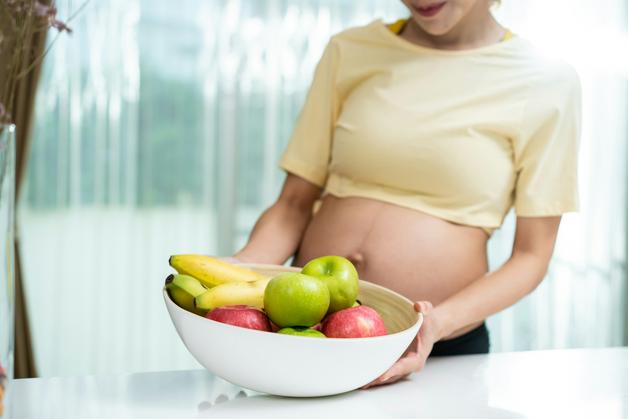Curious why the foods that once sparked joy on your plate now trigger a wave of queasiness and, sometimes, outright disgust? Food aversion pregnancy can descend swiftly, transforming a routine mealtime into an unpredictable challenge. For many parents-to-be, this phenomenon can spark real concern: Will my nutritional needs (and my baby’s) still be met? How do I handle the sudden intolerance for healthy staples or treasured comfort foods? Let’s unravel the mechanisms behind these shifts, examine which foods tend to cause the strongest reactions, highlight the scientific keys to nutritional balance, and offer pragmatic, reassuring strategies to ease this temporary turbulence. Pregnancy reshapes more than the body—it remixes the senses, routines, and even emotions connected to food.
Understanding Food Aversion Pregnancy: The Science Beneath the Surface
First, why does food aversion pregnancy strike so forcefully? The explanations are as layered as the experience itself. Hormonal cascades—especially surges in human chorionic gonadotropin (hCG) and estrogen—intensify the body’s response to taste and, especially, smell. Suddenly, the barely-there aroma of last night’s leftovers, or the gentle steam wafting from a pan of cooking broccoli, might provoke instant revulsion. Olfactory sensitivity becomes nothing short of a superpower—though not one most would gladly choose.
Physiologically, progesterone slackens the rhythm of digestion, leading to a heightened sense of fullness and, for many, a quick plunge into nausea even after small meals. The science is fascinating, even if the effect is anything but pleasant. Psychologically, protective instincts awaken: the brain steers pregnant individuals away from foods linked to infections or contaminants—think undercooked meats, certain fish, or unpasteurized products. It’s a blend of body and mind, biological safeguard and emotional recalibration.
Which Foods Most Commonly Trigger Food Aversion Pregnancy?
You might start to notice a pattern—foods with bold flavors or distinct odors tend to top the list. But the specifics often surprise. If you find your lifelong favorite is suddenly intolerable, you’re not alone; these are the most frequently cited culprits:
- Red meats and poultry: Rich scents, dense textures, and, not least, the ever-present pregnancy advice about food safety make them likely triggers.
- Eggs: Especially when not thoroughly cooked, eggs can flip from breakfast staple to nausea-inducing foe.
- Fish and seafood: The aroma and taste are amplified, often moving beyond mere unpalatability to the realm of the unbearable.
- Dairy products: For some, milk and cheese ignite digestive discomfort or simply repel due to their characteristic odor.
- Alliums and spices: Garlic, onions, or heavily seasoned, aromatic foods often become intolerable.
- Bitter greens or cruciferous veggies: Think broccoli or Brussels sprouts—suddenly, these superfoods evoke a visceral “no.”
- Processed meats: Caution around ingredients or additives sometimes accentuates the aversion.
It’s essential to realize that food aversion pregnancy can be mercurial. Dislikes may change overnight; food that was shunned last week can, sometimes unexpectedly, become palatable again.
Nutritional Impact of Food Aversion Pregnancy: Understanding the Possible Consequences
When key foods drop suddenly off the menu, concerns about nutrition are entirely valid. What if those essential proteins, iron sources, or calcium-rich products no longer seem eatable? Here are the medical considerations parents often juggle:
- Protein and iron: Avoidance of meats, eggs, or legumes could tip the balance toward deficiency. Iron, in particular, is a watchpoint—low intake may lead to anemia, marked by fatigue and increased susceptibility to infections.
- Calcium and vitamin D: Turning away from dairy can challenge bone health in both parent and baby; finding robust substitutes becomes a priority.
- Folic acid, omega-3s, and key micronutrients: These are fundamental building blocks for fetal neurological and skeletal development. Consistent bypassing of fruits, vegetables, or whole grains may chip away at these reserves.
- Hydration and general caloric intake: Persistent nausea or vomiting may cause weight loss or dehydration, especially if paired with food aversion pregnancy.
The reassuring news: The body is adept at compensation (to a point) and can mobilize nutrient reserves in the short-term. Most aversions are transient. However, if eating becomes unsustainably difficult—marked weight loss, constant vomiting, or signs of dehydration—it’s time to check in with a healthcare professional.
Practical Strategies: Eating Well Despite Food Aversion Pregnancy
Struggling to get through meals without triggering a wave of queasiness? It’s not about pushing through disliked foods (which often backfires). Instead, adaptability and a willingness to experiment protect well-being and confidence at the table.
- Smaller, frequent meals: Reduces the likelihood of fullness-induced nausea and keeps energy steady.
- Testing alternative proteins: If red meat and eggs are off the list, options like tofu, well-cooked legumes, and nuts and seeds step up. Even mild, carefully prepared fish or plant-based protein powders may be tolerated.
- Calcium from new sources: Almonds, calcium-fortified plant milks, cooked kale, or broccoli can fill the dairy gap.
- Intentional meal textures: Smoothies, soups, and purees—cool, blended, or softly textured—are often more digestible, both physically and mentally.
- Gentle snacks: Plain toast, applesauce, or yogurts (dairy or plant-based) can soothe and sustain.
- Mitigating strong odors: Keeping windows open, asking someone else to cook, or eating cold rather than hot foods can dampen nausea.
- Trying gentle herbal teas: Lemon balm or ginger tea (the latter backed by some research for morning sickness relief) may provide tangible comfort.
- Maintaining hydration: Sipping water, enjoying flavored waters, or crunching on water-rich fruits like watermelon keeps fluids steady when full glasses feel daunting.
Flexibility, patience, and self-compassion—these are not platitudes, but practical tools for parents living the shifting landscape of food aversion pregnancy.
Emotional Well-being: Food Aversion Pregnancy and the Mind-Body Connection
Losing favorite foods—even temporarily—can create ripples that wash far beyond the dinner table. Emotional responses such as frustration, sadness, or even guilt are common, and they deserve both acknowledgment and compassion.
Why does this happen? Food is rarely just about nutrients or calories—it’s tied to ritual, memory, and comfort. Sudden changes, especially those outside your control, may disrupt routines and social connections. Recognizing these emotions (and sharing them with a listening partner or healthcare provider) can help buffer the psychological impact.
What supports emotional well-being during food aversion pregnancy?
- Focusing on foods that feel safe, enjoyable, or simply tolerable: Building meals around these minimizes anxiety.
- Adapting meal routines, involving supportive friends or family members: Sometimes, having someone else prepare or serve food eases tension.
- Remembering that this phase is usually temporary: Most food aversions recede as pregnancy continues, making room for variety again.
Monitoring and When to Consult a Professional
Persistent or severe food aversion pregnancy—especially when eating and drinking become genuinely difficult—signals the need for expert input. Watch for these red flags:
- Loss of more than 10% of pre-pregnancy weight
- Ongoing vomiting, inability to keep down solids or fluids
- Reduced urination, intense thirst (warning of possible dehydration)
- Extreme fatigue, repeated dizziness, or worryingly slow weight gain
If any of these set in, seek prompt guidance from a doctor, midwife, or registered dietitian. Dietary adjustments, supplements (such as iron, B12, calcium, or folic acid), and sometimes even short-term hospital care can restore balance and peace of mind. Conversation matters: A compassionate ear and nuanced medical support can catalyze progress when obstacles feel insurmountable.
Special Considerations: Plant-Based Diets, Allergies, and Individual Preferences
For those already navigating a diet without certain food groups—due to veganism, allergies, or personal conviction—food aversion pregnancy may narrow choices even further. Diversity becomes both a goal and a challenge.
- Deepen the rotation of plant proteins: Lentils, chickpeas, quinoa, soy products, and well-cooked grains—all can shore up protein needs.
- Choose fortified cereals and plant milks to cover nutritional bases like B12, iron, and calcium.
- Include omega-3-rich seeds (flax, chia, walnuts) and, if possible, fully cooked eggs.
- Adjust preparation—steamed, roasted, blended, textured in new ways—to ease acceptance.
Key step: Always discuss with a healthcare provider before adding supplements, as needs differ widely. Unusual fatigue, persistent metallic taste, or digestive shifts are worth voicing early.
Food Aversion Pregnancy: Myths, Realities, and Evidence
- “It’s the opposite of a craving.” Actually, aversion is more than simply not wanting a food; it’s a deep-seated neural and hormonal reaction, not just preference reversed.
- “Small bites will help you adapt.” In reality, even tiny samples often don’t overcome the barrier until the aversion resolves naturally.
- “The foods you dislike can predict your baby’s gender.” No credible evidence supports this—they are individual responses, not windows onto fetal secrets.
- “Food aversion signals a problem with pregnancy.” Far from it. In most cases, it’s a normal—if inconvenient—physiological process. Persistent inability to eat or drink, however, is the exception and always deserves attention.
- “There is a miracle cure for food aversion pregnancy.” Symptoms fluctuate, solutions are individual, and gradual adaptation with encouragement forms the backbone of effective coping.
Key Takeaways
- Food aversion pregnancy is startlingly common, propelled by hormonal, sensory, and psychological changes. You are not imagining it—preferences can shift overnight and unpredictably.
- The foods most often implicated include meats, eggs, certain dairy products, strong vegetables, and aromatic or heavily seasoned dishes.
- Short-term conflicting food responses are rarely dangerous. But sustained aversion, notable weight loss, or dehydration raises red flags best handled with professional support.
- Focus on flexible eating: experimenting with safe, tolerated foods while working with your care team to maintain nutrition. Compassion and patience are just as essential as vitamins.
- Emotional impacts exist but do not define the experience; practical adaptation, open communication, and a supportive environment help restore comfort around mealtimes.
- For personalized guidance adapted to your symptoms, questions, and child’s needs, you can explore helpful resources like the Heloa app, offering free health questionnaires and advice tailored for parents.
Food aversion pregnancy may reshape the landscape of eating for a time, but it rarely builds an insurmountable wall. With open-minded experimentation, attentive self-care, and medical partnership where needed, the way forward becomes clearer—mealtime by mealtime.
Questions Parents Ask
Can food aversions during pregnancy indicate the baby’s gender?
It’s natural to wonder if certain symptoms, like food aversions, hold clues about your baby’s gender. While many cultures have traditional beliefs linking specific aversions to having a boy or a girl, scientific research does not support this theory. Food dislikes and sensitivities are a response to the changes in hormones that come with pregnancy, and each person experiences them differently. There is no medical evidence that connects the types of foods you avoid with the gender of your child.
What should I do if food aversions make it hard to eat enough during pregnancy?
If you notice that it’s becoming challenging to maintain your regular eating habits due to strong aversions, try not to worry—this situation is more common than you might think. Focusing on small, frequent meals and choosing foods that feel tolerable, even if they are different from your usual favorites, can help provide the energy and nutrients needed. If you struggle to keep food or fluids down, or if you begin to feel weak or dehydrated, it is important to seek advice from a healthcare professional. They can offer tailored solutions to support both your own well-being and that of your baby.
Are food aversions during pregnancy normal, and will they last the entire pregnancy?
Developing strong dislikes for certain foods during pregnancy is very common and usually nothing to be concerned about. These sensitivities are most frequent during the first trimester, when hormonal changes are at their peak. For many people, food aversions become less intense or disappear altogether as the pregnancy progresses. However, the timeline varies from person to person. If aversions persist or lead to growing worries about nutrition, reaching out to a care provider is a supportive step. Remember, this phase is generally temporary, and it’s okay to listen to your body’s signals.










